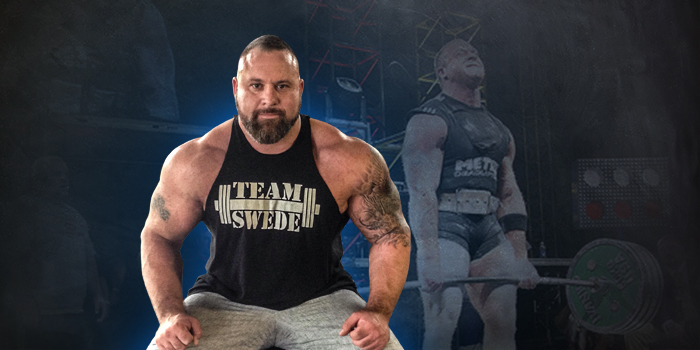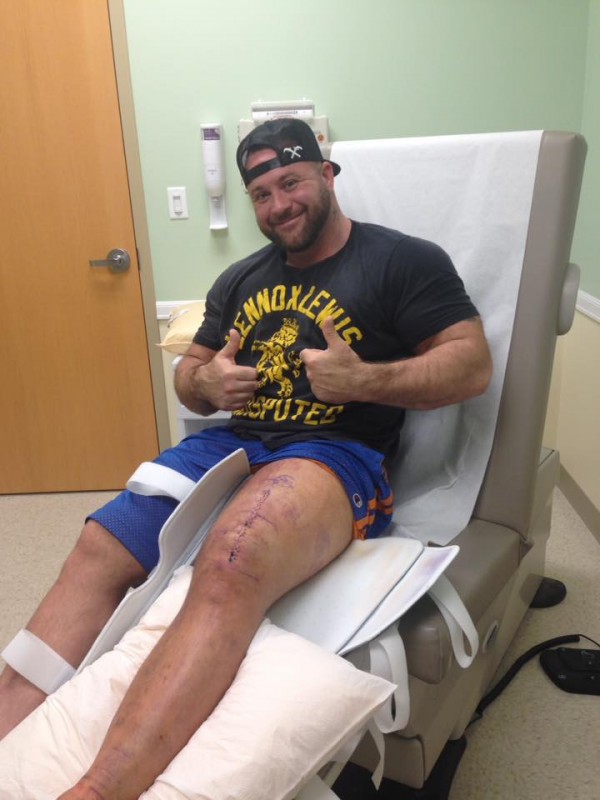
You’re pacing back and forth waiting for the loaders to put the plates on the bar. For eight months you’ve trained and pushed and bled for this one moment. Your friends don’t really talk to you anymore because they say all you talk about is stupid powerlifting. You’ve basically been living in hotels because your girlfriend kicked you out after you missed her birthday, but fuck, it was squat day. That new job you worked so hard to get is slowly falling apart because you threatened to break Bill from accountings’ jaw at the water fountain when he cut in front of you. Tren and new jobs don’t mix but there’s no turning back now. Greatness is right in front of you.
Squats went well, three-for-three with a nice PR. First attempt bench moved like a warm-up and deadlifts are your lift. Just smash these next two benches and it’s all worth it. Bar is loaded. You chalk your hands, re-tighten your wraps, lie down, and set up. You squeeze your ass, fill your belly with air, and take the bar down. Something doesn’t feel right as the bar descends, like your left pec is cramping or something. You touch, hear "press," and then POP! It all goes black.
RECENT: Powerlifting Then and Now
Welcome to powerlifting, the land of soul crushing disappointment. Every time you get on the platform it might be your last. I’ve watched Gods crumble into mortals in less than a second. I’ve seen my heroes crying in the fetal position after tearing muscle off the bone. I’ve held the hands of the strongest men on the planet while their body contorted on the ground. I've heard the noises, the tearing and popping, followed by the blood-curdling screams of a man who just lost everything. It keeps me up at night.
Exactly a year ago I was lucky enough to suffer my first major powerlifting injury. Wait, what? How can you be lucky to get injured? Didn’t you say that injuries are the most devastating thing that can happen to a lifter? Yes, they are, but it’s a guaranteed part of the journey if you’re a real competitor. How you deal with it is a measure of the kind of lifter you are.
Now, let’s talk about what I mean when I say “injury.” By injury, I mean acute and devastating trauma performed while completing a squat, bench, or deadlift, which requires surgery. Let’s take a short quiz before we go any further to make sure we are on the same page. Jim is riding his 10-speed and hits a big bump in the road. Jim scrapes his elbows and can’t make it to squat night because it hurts too much to get under a bar. What is the situation?
- Jim is hurt.
- Jim is injured.
- I want to beat Jim to death with his bike for riding it in the street.
- Jim is clearly a pussy and probably uses powerlifting as a means to post Instagram pictures of his shitty lifts that no one gives a fuck about.
- All the above.
Okay, well you get it, I think. The little daily mishaps that lead to small cuts or soreness are not injuries. You should not be missing training days for them. I worked as a bouncer for 12 years at various bars and nightclubs. I’ve been stabbed, hit with bottles, had my skull fractured twice, broken my hand more times than I can count, and had numerous broken noses and ocular bone breaks. Not once did I ever miss a training day.
So, what good comes out of an injury? Well, first of all it gives you a chance to specialize and really focus on an individual lift. When I tore my quad and IT band at Reebok Record Breakers last year, I made it my mission to build a perfect bench. My brother Swede Burns and I spent six months focused on technique first. We built the perfect setup, relying mainly on the "heels to traps cue," which uses the kinetic energy from the feet and pushes it up through your chest, shoulders, and arms. Then we focused on “chesting up” to the bar and filling up the midsection. We also focused on adding muscle by doing high volume with sub-maximal weights. We built up my upper back, shoulders, and triceps, and eight months into the injury I was 20 pounds heavier despite having the same legs as Stephen Hawking. Fuck it, I looked like a missed leg day meme and benched 580 easily. It was my first bench PR in three years. Call me a bench specialist and I’ll kick you in the face with my cerebral palsy legs.
I was able to start squatting again about six months after surgery. Of course I wanted to jump right back in, but Swede is like that mother who makes her kids wear a helmet when they ride a bike and can’t play football because it’s too dangerous, so we started with 95 pounds. I learned to really focus on actually squatting like a raw powerlifter and brought my feet in for a closer stance. Fifteen years of multi-ply squatting gave me a very strong lower back and hamstrings but a very week pair of quads. For the first time in my powerlifting career I was able to focus on technique without competitions in my immediate future. I completely changed my movement patterns and have become a much more efficient squatter. The ability to train and not think about sponsors or winning competitions gave me a much-needed break to actually get better.
I will leave you with a story about my good friend, Vlad Alhazov, as I believe it is one that should be told in every gym. Vlad came to Westside in 2008, I believe. He was the strongest human being that I’ve ever trained with. I’m guessing he was around six feet, two inches, and 400 athletic, powerful pounds. He was a throwback to a time when men killed each other in battle with axes and swords. I used to picture him holding a head with part of the vertebrae still attached and screaming over the bloody body of some dead asshole that opposed him.
Vlad would do ridiculous shit that no one else on the planet could do. One day he wanted to squat 1300 pounds (not a typo) and on his way down a pop sounded from his knee and that massive weight crashed down. He was put on an ambulance and whisked away. That was the last time I saw my friend. Ten years later I was at work scrolling through Facebook and saw his name with "1100-pound raw squat" next to it. We got in touch and it seems he practiced and trained the movement until he was sure he could break the all-time record, and then he destroyed it.
So, if you’re lying in bed crying about your torn meniscus then man the fuck up and use this story to teach and motivate you. Be done when you’re ready, on your own terms, and accept nothing but progress along the way.
Greg Panora resides in Portland, Maine. He is a powerlifting coach out of CrossFit CacoBay, provides online coaching, and lectures around the country. His best totals include 2630 multi-ply, 2335 single-ply, 2102 raw (no wraps), and a 580-pound (bench only) bench press.











4 Comments